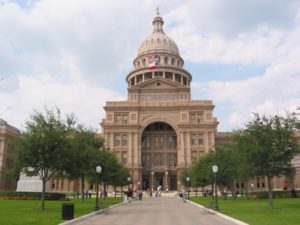SB 1941 would make clear that transmission and distribution utilities possess legal authority to deploy utility-scale batteries.
For much of the history of the electric delivery system in the United States, a fundamental assumption has been that there is no practical and economical way to store electricity. As a result, utilities typically have focused on keeping supply and demand precisely synced at all times. In recent years, however, this assumed framework has been called into question — new battery technologies have emerged that have reduced the price of storage, and increased batteries’ potential size and usefulness to the system. Over the past several months this trend has affected ongoing deliberations at ERCOT — that is, the operator of the state’s primary power grid — as well as the Public Utility Commission and the Texas Legislature.
During the ongoing Legislative session in Austin much debate has centered on Senate Bill 1941, by state Sen. Kelly Hancock. This legislation would make clear that ERCOT’s transmission and distribution utilities such as CenterPoint and Oncor possess the legal authority to use batteries as an alternative to traditional distribution wires — but only when cost-effective. The Texas Senate adopted SB 1941 on April 17 and the House State Affairs Committee followed with its approval on May 10. However SB 1941 still needs approval from the full House before it can become law. You can read more about the legislation at this link.
ERCOT, for its part, hosted a forum in April on issues relating to how energy storage devices can interact with the system, and the value that they can present. At the PUC, staff has begun considering questions regarding utility ownership of storage facilities. The agency may follow up with a full rule-making proceeding later this year, perhaps after the Legislature has had the opportunity to act on SB 1941.
You can find more about PUC’s energy storage deliberations at this link.
Chris Brewster, an attorney with Lloyd Gosselink, participates in in ERCOT matters on behalf of municipalities.


